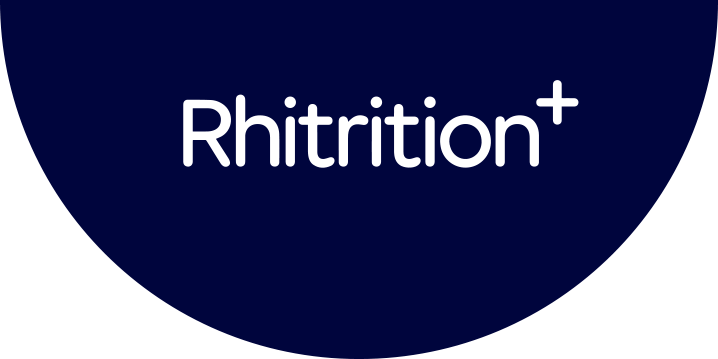Can Children Take A Vitamin D Supplement?
Article by Rhiannon Lambert, BSc MSc RNutr
In the UK, as stated by the NHS, government health officials recommend that all children aged six months to 5 years should be given daily vitamin supplements containing vitamins A, C and D. For vitamin D however, if you are breastfeeding your child then they should be given a vitamin D supplement from birth, regardless of whether or not you are taking a vitamin D supplement yourself. So why do children need vitamin D and how can we ensure they get the recommended daily amount?
What Is Vitamin D?
Vitamin D is often referred to as the sunshine vitamin, as we get the majority of our vitamin D from exposure to the sun’s rays. It can also be found in some foods but in fairly low amounts, so even if you eat a varied and balanced diet you are unlikely to get enough vitamin D within your diet. We need vitamin D in our body for a variety of functions with the most important one being to help regulate the amount of phosphorous and calcium within the body. This regulation is needed to help keep our teeth, bones, and muscles healthy. We also need vitamin D to help support a healthy immune system as well.
Why Do Kids Need Vitamin D?
It is estimated that 16% of children in the UK are deficient in vitamin D and this may lead to adverse effects and symptoms, such as pain, bone deformities, delayed development, and a calcium imbalance. To ensure the optimal development and growth of your child, they should be given a range of foods as part of a healthy balanced diet. This includes a variety of fruit, vegetables, legumes, pulses, whole-grains, nuts and seeds, to promote their intake of important vitamins and minerals, including sources of vitamin D.Vitamin D is an important mineral that should be part of a child’s diet because it is essential for maintaining healthy bones. Low vitamin D levels in children have been linked to increased risks of rickets (a condition that causes bones to become soft and weak which may lead to bone deformities) and reduced bone mineral density. There is also evidence to suggest that vitamin D plays a role in children’s immune systems and brain health, especially when they are growing and developing in the womb.
“All children aged 6 months to 5 years should be given daily vitamin supplements containing vitamins A, C and D. ”
What is the natural source of Vitamin D?
The main source of the vitamin D we get in the UK comes from skin exposure to natural sunlight. This is why in the autumn and winter months (October to March) when sunlight exposure is limited it is recommended that we take a supplement. There are also some foods we can eat which can improve our vitamin D status including,
Oily fish including salmon, sardines, mackerel, trout, pilchard and kippers
Red meat
Liver
Egg yolks
Mushrooms, that have been grown in natural sunlight (UV light)
Fortified foods such as breakfast cereals, fat spreads and infant formulas
Vitamin D for kids
Although the main source of vitamin D is from the sunlight, like the rest of the population, the UK government recommends that children aged between six months to 5 years should still be given daily vitamin D supplements even if they have safe sun exposure.
According to the Department of Health and Social care:
Babies from birth to 1 year of age who are being breastfed should be given 8.5 to 10µg of vitamin D. This is irrespective of whether or not you're taking a supplement containing vitamin D yourself.
Babies should not be given a vitamin D supplement if they are being fed more than 500ml of infant formula milk a day.
Children aged 1 to 4 years old should be given a daily supplement containing 10µg of vitamin D.
How much vitamin D do I need?
In the UK adults are also recommended that during the autumn and winter months (October-March) to take a vitamin D supplement, as the sun's rays are not typically strong enough to allow us to make vitamin D. It is therefore advised that everyone should take a daily vitamin D supplement during these winter months, alongside a healthy, balanced, and varied diet. Adults and children over the age of 4 should also take a daily 10µg vitamin D supplement.
Worried about giving your baby supplements?
Supplements are an important part of your baby and child’s diet, as they support healthy and optimal development. However, the UK government only recommends supplementing with vitamins A, C, and D. Some supplements that are designed for children actually contain a lot more ingredients than just the recommended vitamins, which are often not necessary, so it’s best to speak to a pharmacist for more advice on this before you buy.
Vitamin D testing
It is also important to speak to a health visitor, GP, or pharmacist if you think your child may be deficient in vitamin D as they will be able to point you in the right direction and administer the correct tests to monitor your child’s vitamin D levels.
What does a balanced diet look like for a child?
While supplements have a place in some people’s diets particularly vitamin D due to lack of sunshine exposure during winter in the UK, it is important that we aim to get as many nutrients as we can from dietary sources in a healthy, balanced diet.To help your child get enough vitamin D, as well as other nutrients, from both supplementation and dietary sources it’s essential that their diet consists of lots of fruits and veg, wholegrains, legumes, pulses, nuts, and seeds.As parents and a child’s primary caregiver, it is very important that you support and guide them to make positive behavioural and nutritional choices around food, which can impact growth, development, and future health outcomes.
Children aged between 1 and 4 years old need three meals and some snacks made up of the four main food groups, in the correct portion sizes, each day. But, what does this look like?
5+ portions of fruits and vegetables
5 portions of starchy carbohydrates
3 portions of dairy or alternatives
2 portions of protein (3 if vegetarian)
A thumb-sized portion of fat
Additional information about Vitamin A and C
Vitamin A
This vitamin is needed for keeping your child’s immune system and skin healthy, as well as maintaining good eye health so that they are able to see in dim lighting. Vitamin A can be found in most yellow, red, and orange fruits and vegetables such as carrots, sweet potatoes, swede, and mangos; dark green vegetables such as spinach, cabbage, and broccoli; dairy products, and fortified foods such as spreads.
Vitamin C
Another vitamin which is also important for your child’s immune system is vitamin C. This can be found in most fruits, including oranges and other citrus fruits, kiwi fruit, strawberries, broccoli, tomatoes, and peppers.
Rhitrition+ Vitamin D oral spray
At Rhitrition+ we will always advocate a ‘food first’ approach when it comes to nutrition and health. However, we know that sometimes this isn’t always possible, particularly for vitamin D intake in the UK, and for children with fussy eating habits or who can’t swallow large supplement tablets. Our vegan vitamin D oral spray is suitable for adults and children over a certain age to ensure you receive the required and recommended daily amounts in one simple spray, with optimal absorption for healthy bones, teeth and muscles. We always recommend that you discuss this with a GP, health visitor, or pharmacist before giving your child any supplements. For any further information or clarification then please email info@rhitritionplus.com




